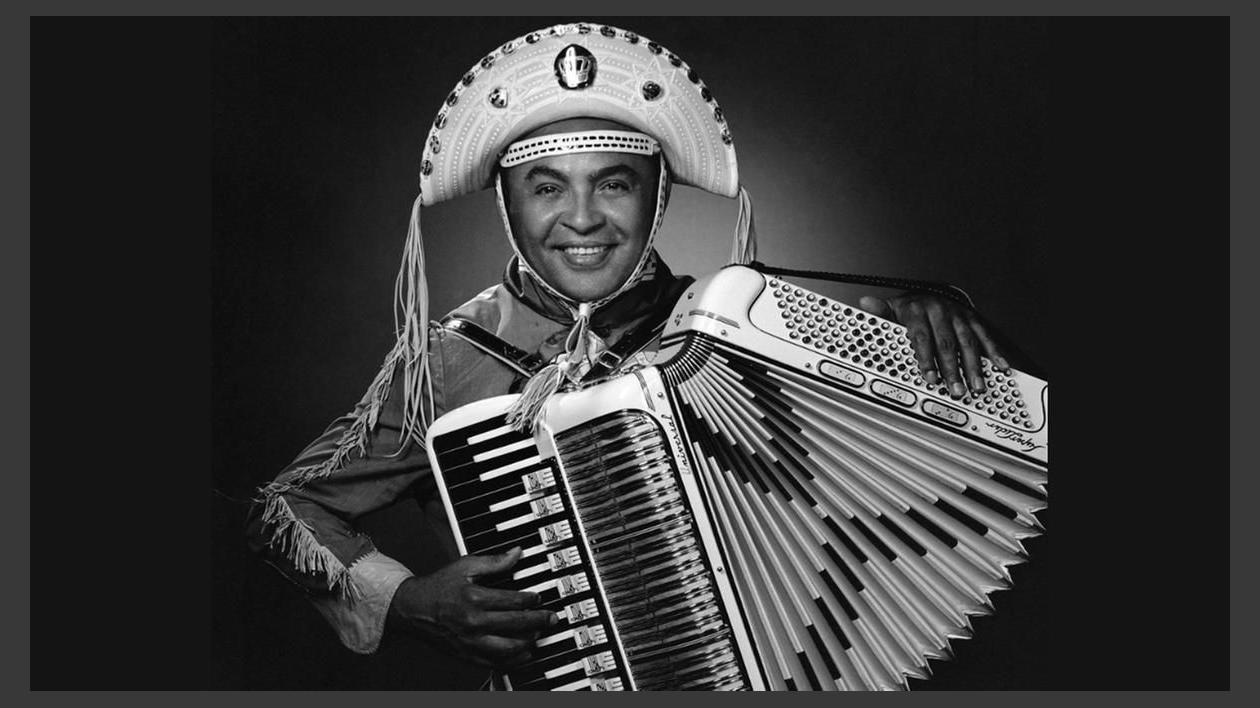 Luiz Gonzaga
Luiz Gonzaga
Luiz Gonzaga: The Accordionist who Embodied the Heart of Northeastern Brazil
Luiz Gonzaga, the legendary Brazilian musician, emerged as a musical icon whose accordion melodies and infectious rhythms immortalized the traditions and struggles of his beloved Northeastern homeland. With his distinctive attire, including a straw hat known as a "chapéu de couro," and his trademark accordion, Gonzaga became a symbol of Nordestino culture.
Early Life and Formation:
Born on December 13, 1912, in Exu, Pernambuco, Gonzaga's childhood was marked by poverty and the hardships of rural life. Inspired by the traditional music of his region, he began playing the accordion at a young age. In the 1940s, he moved to Rio de Janeiro, where he met with mixed success but gained recognition for his unique style.
Musical Breakthrough with "O Cheiro da Carolina":
Gonzaga's breakthrough came in 1946 with the release of the song "O Cheiro da Carolina." The melody and lyrics, inspired by the scent of blooming jasmine, captured the essence of his Northeastern roots. The song became an instant hit, establishing Gonzaga as a star and paving the way for his illustrious career.
Challenges and Controversies:
Gonzaga's journey was not without its challenges. His music was often criticized for being "too rural" or "unrefined." However, he remained steadfast in his commitment to preserving and popularizing Nordestino culture. He also faced controversy due to his outspoken political views, which often reflected his deep concern for the plight of the Northeastern poor.
Discography and Legacy:
Over his illustrious career, Gonzaga released over 60 albums and sold millions of records. His discography includes classic albums such as "Gonzagão" (1953), "Assum Preto" (1965), and "Sanfona Sentida" (1985). Gonzaga's music continues to inspire and unite generations of Brazilians.
Members:
Gonzaga initially performed solo, but later formed the legendary group "Trio Nordestino" with Humberto Teixeira and Zé Dantas. The trio became a formidable force in Brazilian music, touring extensively and leaving a lasting impact on the genre.
Death and Legacy:
Luiz Gonzaga passed away on August 2, 1989, in Recife, Pernambuco. His death was mourned throughout Brazil, and he is remembered as one of the most influential and beloved musicians in the nation's history. His legacy lives on through his timeless music, which continues to resonate with Brazilians who cherish the traditions and spirit of the Northeast.
Luiz Gonzaga, the legendary Brazilian musician, emerged as a musical icon whose accordion melodies and infectious rhythms immortalized the traditions and struggles of his beloved Northeastern homeland. With his distinctive attire, including a straw hat known as a "chapéu de couro," and his trademark accordion, Gonzaga became a symbol of Nordestino culture.
Early Life and Formation:
Born on December 13, 1912, in Exu, Pernambuco, Gonzaga's childhood was marked by poverty and the hardships of rural life. Inspired by the traditional music of his region, he began playing the accordion at a young age. In the 1940s, he moved to Rio de Janeiro, where he met with mixed success but gained recognition for his unique style.
Musical Breakthrough with "O Cheiro da Carolina":
Gonzaga's breakthrough came in 1946 with the release of the song "O Cheiro da Carolina." The melody and lyrics, inspired by the scent of blooming jasmine, captured the essence of his Northeastern roots. The song became an instant hit, establishing Gonzaga as a star and paving the way for his illustrious career.
Challenges and Controversies:
Gonzaga's journey was not without its challenges. His music was often criticized for being "too rural" or "unrefined." However, he remained steadfast in his commitment to preserving and popularizing Nordestino culture. He also faced controversy due to his outspoken political views, which often reflected his deep concern for the plight of the Northeastern poor.
Discography and Legacy:
Over his illustrious career, Gonzaga released over 60 albums and sold millions of records. His discography includes classic albums such as "Gonzagão" (1953), "Assum Preto" (1965), and "Sanfona Sentida" (1985). Gonzaga's music continues to inspire and unite generations of Brazilians.
Members:
Gonzaga initially performed solo, but later formed the legendary group "Trio Nordestino" with Humberto Teixeira and Zé Dantas. The trio became a formidable force in Brazilian music, touring extensively and leaving a lasting impact on the genre.
Death and Legacy:
Luiz Gonzaga passed away on August 2, 1989, in Recife, Pernambuco. His death was mourned throughout Brazil, and he is remembered as one of the most influential and beloved musicians in the nation's history. His legacy lives on through his timeless music, which continues to resonate with Brazilians who cherish the traditions and spirit of the Northeast.